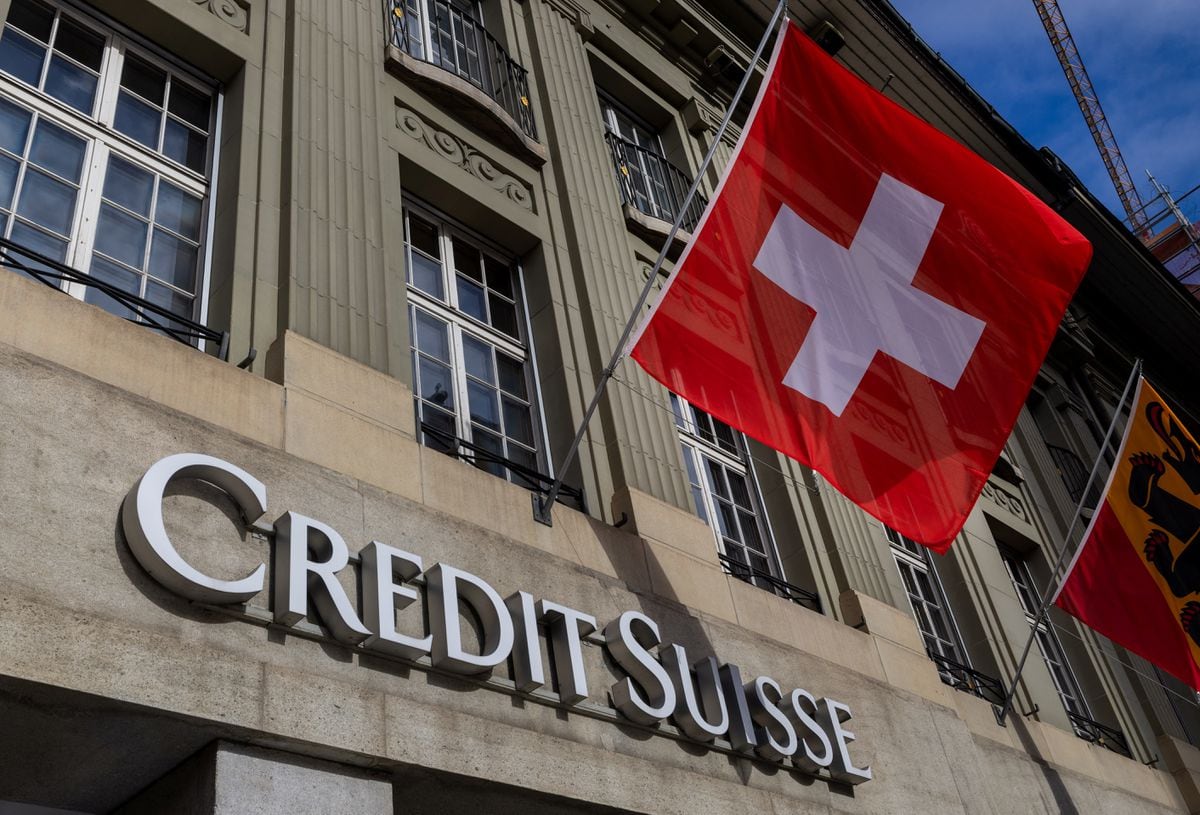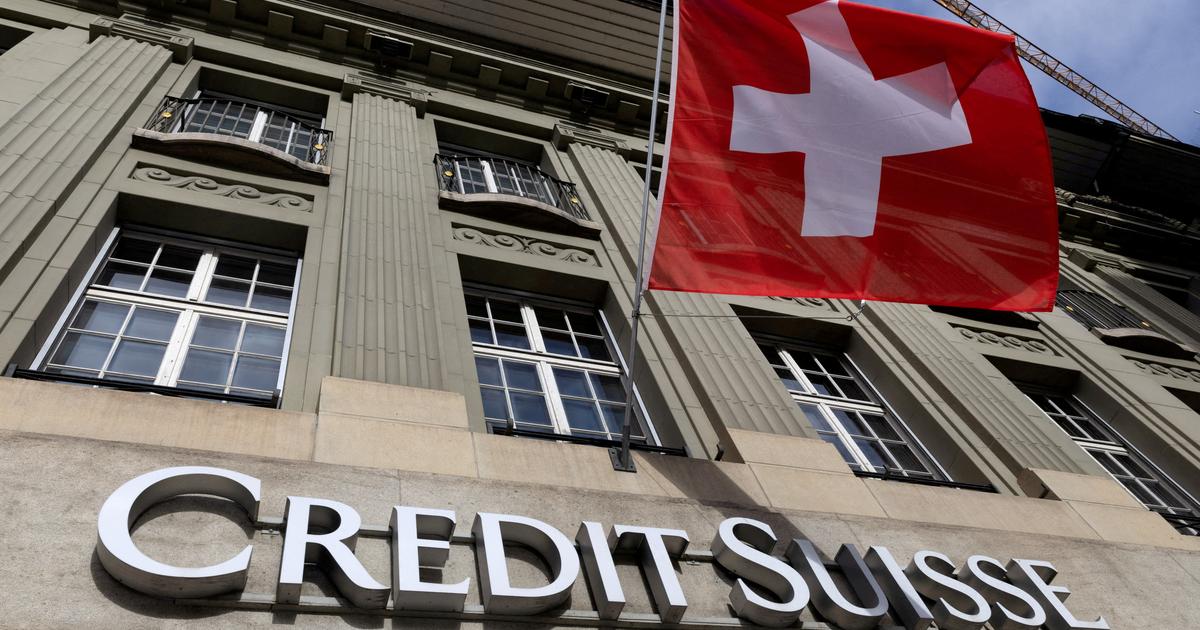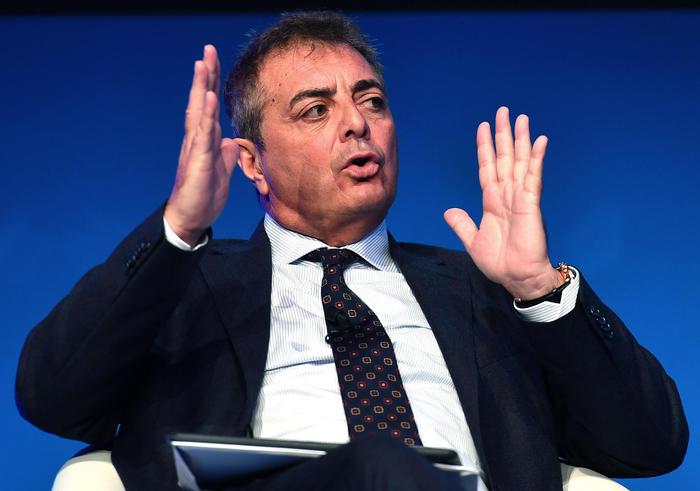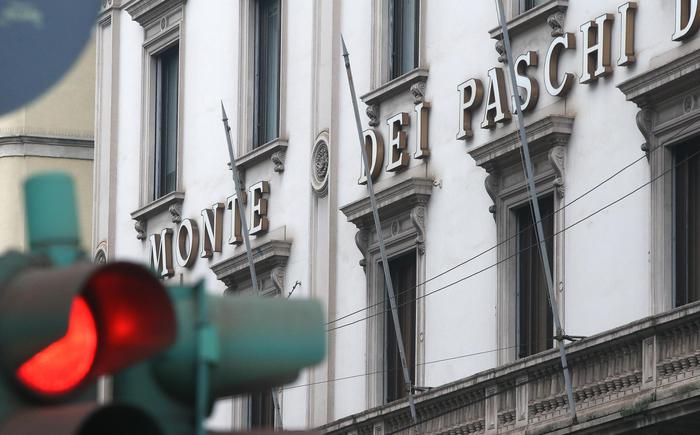The express sale of Credit Suisse to UBS this Sunday prevented the greater evil of an uncontrolled fall of a symbol of Swiss financial power, but its rescue may not be the last chapter of the banking crisis that began in the US almost two weeks ago.
European entities suffered significant losses on Monday at the beginning of the day on the stock market, although these moderated as the session progressed, amid high volatility.
Among the biggest victims is UBS itself, with its shares down 5%, and declines that have come to exceed 15%.
The price paid by Credit Suisse, 3,000 million euros, may seem cheap if one takes into account that it was valued at 7,500 million only two days before, but the firm, now become the great dominator of the sector in Switzerland and one of the giants of Europe,
Salvation
in extremis
It leaves as a positive reading that the authorities have been agile enough to prepare a firewall in record time, but the distrust due to the abrupt end of one of the flagship banks of Europe, together with the problems of regional entities in the US they do not seem to have bottomed out —the First Republic Bank collapsed again before the opening of the US market—, they do not finish appeasing the uncertainty.
The Stoxx Europe 600 Banks index, which groups 600 entities, dropped 1.5% at one in the afternoon, after losing twice as much in the early stages.
The German Deutsche Bank and Commerzbank, the Dutch ING and the French Société Générale were among the hardest hit.
The Spanish, on the other hand, resisted somewhat better than their European counterparts.
Nor has the market liked that the owners of 16,000 million euros in high-risk debt from Credit Suisse are going to lose everything while shareholders will receive 3,000 million.
The Credit Suisse share price, although already inconsequential because its integration into UBS is closed, today included the discount at which it was sold: it fell 60% to 0.73 francs, a significant blow for those who still held shares, but less to that of the bondholders, an order of priorities opposite to that followed in the euro zone, as the European Central Bank has recalled in a statement.
This movement has raised the perception of the risk of this type of product, which will make the cost of issues more expensive, and therefore the financing of banks in this way.
Just hours after the historic rescue operation, reactions ranged from relief at having dodged a
Lehman moment
— more visible abroad — to a mix of shame and outrage in Switzerland.
The country has seen an emblem of the bank with 167 years of life disappear in a frenetic week.
Although in recent times the succession of scandals had distanced it from the population, the entity still carries the
Swiss word
in the name, and was founded by Alfred Escher, one of the great historical personalities of the country, promoter of the railway, and creator of the Federal Polytechnic Institute.
For this reason, many consider that the unparalleled voracity of Credit Suisse executives has betrayed that legacy, tarnished the name of Switzerland and sunk a bank that withstood wars and pandemics.
More information
Credit Suisse, the decline of a symbol of financial power
With Switzerland in an election year, the case will still give rise to high-tension debates and exchanges of reproaches.
The Socialists demand an investigation, and the PLR Liberals have loudly expressed the feeling of wounded pride that runs through the country.
"What has happened with Credit Suisse is a shame for Switzerland," they summarize.
The nationalist right of the UDC has charged against the negligent management of senior executives.
"The Swiss must answer for the errors of the Credit Suisse management with billions of francs of national assets," they say, referring to the liquidity line of 100,000 million that the Swiss National Bank has made available to UBS. , and the 9,000 million in guarantees received to cover potential losses of his investment in Credit Suisse.
Marc Chesney, a finance professor at the University of Zurich, sees risks in the concentration of the Swiss banking sector.
“The enormous power that UBS is going to take over is dangerous.
What will happen if he has problems again like in 2008?
It's a forward kick.
It's not just the bankruptcy of Credit Suisse, it's the bankruptcy of casino finance."
He is also critical of the publicly deployed lifeline for UBS.
"Those guarantees are huge, and no one has asked the taxpayer if he agrees."
It can't be said that the group's collapse came as a complete surprise: no one was unaware that Credit Suisse was suffering severely declining bottom lines, instability at the top, and had to resort to Saudi money to get by.
Its poor risk management, together with bad practices harshly sanctioned by regulators, have been undermining its credibility, especially in the last five years.
Still, he had managed to survive, and many expected it to be just another bump in the road.
Outside the Swiss borders they were also aware that it was the weakest link in European banking.
This was expressed by François Villeroy de Galhau, governor of the Bank of France, in an interview on Monday with
France Inter
.
“We've known for years that Credit Suisse was a troubled bank, losing money and taking a number of risks.
It was a bank even immersed in a series of scandals and reputation problems.
Both he and Finance Minister Bruno Le Maire have defended the soundness of the French banking system.
If something has caused Credit Suisse's spiral of mistrust and deposit leaks, it is the need for the authorities to send public messages of calm, even though their effectiveness has not been proven.
"The German financial system is stable," a spokesman for the Finance Ministry said Monday from Berlin, the same message that the German financial regulator BaFin has sent.
Follow all the information on
Economy
and
Business
on
and
, or in our
weekly newsletter
Subscribe to continue reading
Read without limits
Keep reading
I'm already a subscriber

/cloudfront-eu-central-1.images.arcpublishing.com/prisa/IP7OLYLWBLU4JXS3KJURZRGRA4.jpg)






